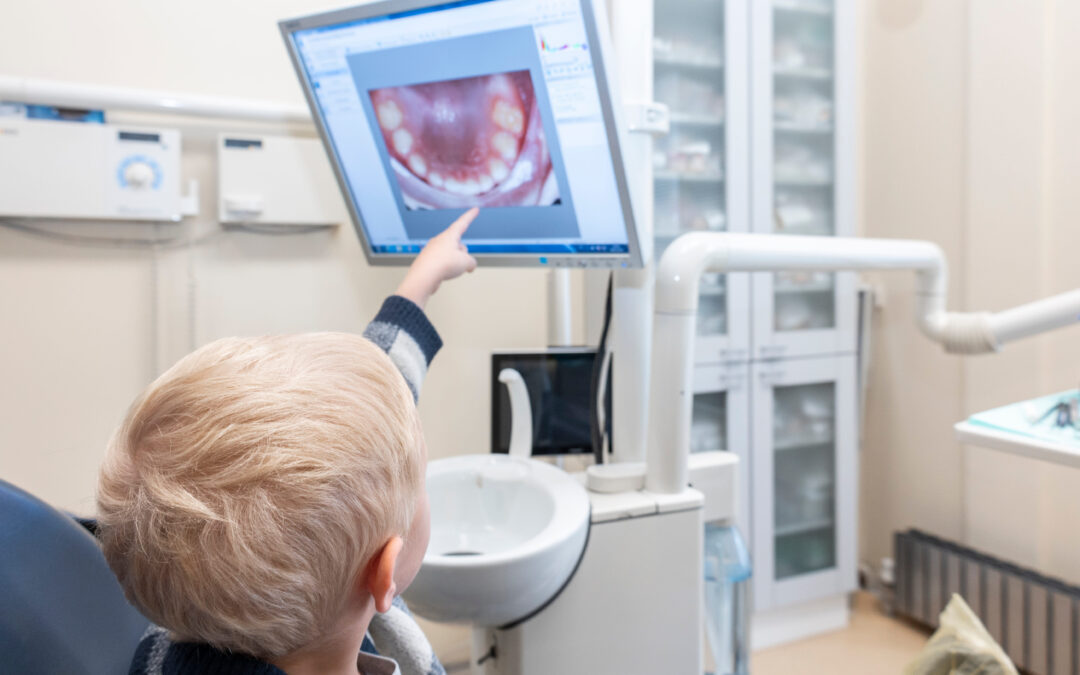The importance of maintaining good oral health cannot be overstated, especially for children. Recognizing signs that your child needs to see a dentist is crucial for preventing and treating dental issues. This article will outline 10 signs that indicate an immediate visit to a pediatric dentist is necessary.
When Toothache Becomes a Daily Complaint
Persistent toothache or pain is a clear sign that something is wrong and should not be ignored. According to the American Dental Association, toothaches are common in children and can stem from various causes such as tooth decay, food stuck between teeth, or tooth eruption in the case of young children. If your child continuously complains of toothache, it’s essential to schedule a visit with a pediatric dentist to diagnose and treat the cause.
Seeing Red: The Alarm Bell of Bleeding Gums
While a little bleeding during brushing may be common, persistent bleeding could be a sign of gingivitis or other gum diseases. The Centers for Disease Control and Prevention states that gingivitis, the first stage of gum disease, is prevalent among children, with about 60% of 15-year-olds showing signs of bleeding gums. If you notice your child’s gums bleed often, it’s essential to seek professional dental care.
Chronic Bad Breath That Won’t Go Away
Bad breath can be common, especially after eating certain foods, but chronic bad breath may indicate poor oral hygiene or an underlying dental issue. The American Academy of Pediatric Dentistry highlights that bad breath can be a sign of gum disease, mouth breathing, or a foreign body stuck in the nasal passages. Regular brushing and flossing should generally keep bad breath at bay. If your child still has persistent bad breath despite maintaining good oral hygiene, it’s important to consult a pediatric dentist.
That Shocking Sensitivity to Hot or Cold
If a child is experiencing sharp pain when consuming hot or cold foods/beverages, it may indicate tooth decay or gum issues. The World Health Organization reports that worldwide, 60–90% of school children have dental cavities, often leading to pain and discomfort. Tooth sensitivity can interfere with a child’s daily activities like eating and drinking, so it’s important to address the issue promptly.
The Struggle of Chewing or Biting
Difficulty or discomfort while chewing or biting can indicate several dental issues, from cavities to jaw problems. The U.S. Census Bureau indicates that nearly one in five children aged 5 to 19 have untreated dental caries. If your child is experiencing trouble while eating, it could be due to untreated dental issues, and a visit to the pediatric dentist is recommended.
The Menace of White Spots on Teeth
White spots on a child’s teeth can be an early sign of tooth decay. According to a report from the Pew Research Center, tooth decay is the most common chronic disease among children in the United States, despite being preventable. If you notice white spots or any discoloration on your child’s teeth, it’s important to get a dental examination as soon as possible.
The Nightmare of Receding Gums or Loose Teeth
Receding gums or loose teeth are serious signs that indicate advanced gum disease or potential tooth loss. The American Dental Association states that periodontal disease, also known as gum disease, is rare in children, but the incidence increases with age. If you notice your child’s gums receding or their teeth becoming loose, it’s crucial to seek immediate dental care.
Swollen Jaw or Cheeks: A Sign of Trouble
Swelling in the jaw or cheeks can indicate an infection or an impacted tooth. The American Association of Oral and Maxillofacial Surgeons reports that by the age of 14, about 30% of children can have an impacted tooth, other than wisdom teeth. Swelling can cause significant discomfort and may lead to more severe complications if left untreated.
The Underestimated Issue of Chronic Dry Mouth
Saliva plays an essential role in oral health by washing away food particles and neutralizing acids produced by bacteria. Chronic dry mouth can lead to tooth decay and other oral health issues. Certain medications, medical conditions, and mouth breathing can cause dry mouth. If your child frequently complains of dry mouth or you notice that their mouth is often dry, it’s important to consult a pediatric dentist.
The Painful Reality of Oral Sores or Canker Sores
Occasional sores are common, but persistent or reoccurring sores can indicate a more serious issue. The Mayo Clinic states that while the cause of canker sores is not entirely understood, they may be triggered by stress, hormonal shifts, or food sensitivities. If your child frequently develops oral sores or canker sores, it’s important to seek a professional opinion to rule out any underlying issues.
Recognizing these signs and seeking immediate professional help is essential for maintaining your child’s oral health. Regular dental check-ups are crucial for preventing dental issues, and it’s always better to address any concerns sooner rather than later. If you observe any of these signs in your child, do not hesitate to contact a pediatric dentist.
Dr. Parker is an award winning dentist and member of the American Dental Association. At Dr. Parker’s Pediatric Dentistry, it is our goal to provide specialized pediatric dentistry in a fun, child-friendly environment, teaching each child how to overcome their fears and creating not only a happy smile, but a happy patient that will enjoy visiting the dentist for a lifetime. Dr. Parker takes a specialized approach to dealing with each child, guiding their dental growth and development, and helping them avoid dental problems in the future. Call us at 504-831-2120 today.
- About the Author
- Latest Posts
Dr. Jason Parker, a distinguished dentist based in New Orleans, was honored with the New Dentist Award by the Louisiana Dental Association in 2008 for his contributions to both the dental profession and the community. With a background in biology and business administration, Dr. Parker has been in private practice since 2001 and specializes in pediatric dentistry


